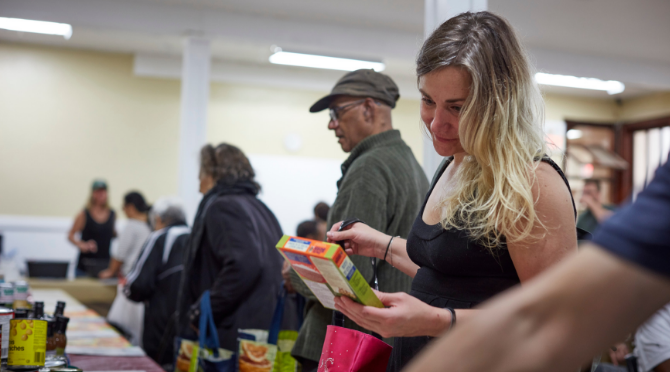
By Haiat Iman, Research & Survey Coordinator, Daily Bread Food Bank
Over the last 5 years, Daily Bread witnessed a gradual increase of women using food banks. While poverty and hunger are not unique to women, the way in which they experience these circumstances are, and understanding how women experience poverty differently than men can lend some insights into how to best tackle these challenges.
Firstly, it is important to examine the connection between hunger and poverty in order to understand why addressing poverty will invariably lead to the elimination of hunger. Poverty and hunger have a symbiotic relationship in that they are both the causes and consequences of each other. On the one hand, hunger is caused by poverty brought on by factors such as unequal income distribution and lack of assets, financial or other that individuals and households can use to acquire foods. The less they have, the less they can acquire, leading them to experience hunger. Hunger in turn can cause or even perpetuate existing health conditions which impacts peoples abilities to secure and/or maintain gainful employment, thereby forcing them to stay poor. The relationship that hunger and poverty have, is therefore about peoples abilities to command food and maintain consumptions. It is linked to their livelihoods.
Thousands of households in the GTA find themselves struggling to put food on the table, a direct outcome of living in a city where the cost of living absorbs most of their incomes. According to the 2018 Who’s Hungry study, after rent was paid, on average, clients were left with $8.04 per day to afford other daily necessities. Women’s experience with poverty however, is unique because of their caregiving responsibilities, which influence their earning capacity. The lack of access to services such as affordable childcare or employment opportunities that are flexible enough to accommodate domestic responsibilities without financial repercussions, pose a great challenge for women to live food secure lives. Female poverty is also associated with child poverty, and as Toronto was recently named the child poverty capital of Canada, it is vital that we understand what women’s struggles are.
A gendered perspective of poverty then, provides a unique lens into the struggles faced by thousands of households across the city of Toronto. Understanding women’s lived experiences is key to solving the hunger problem that plagues our city today and which can impact the generation of tomorrow. Click here to read our full report.